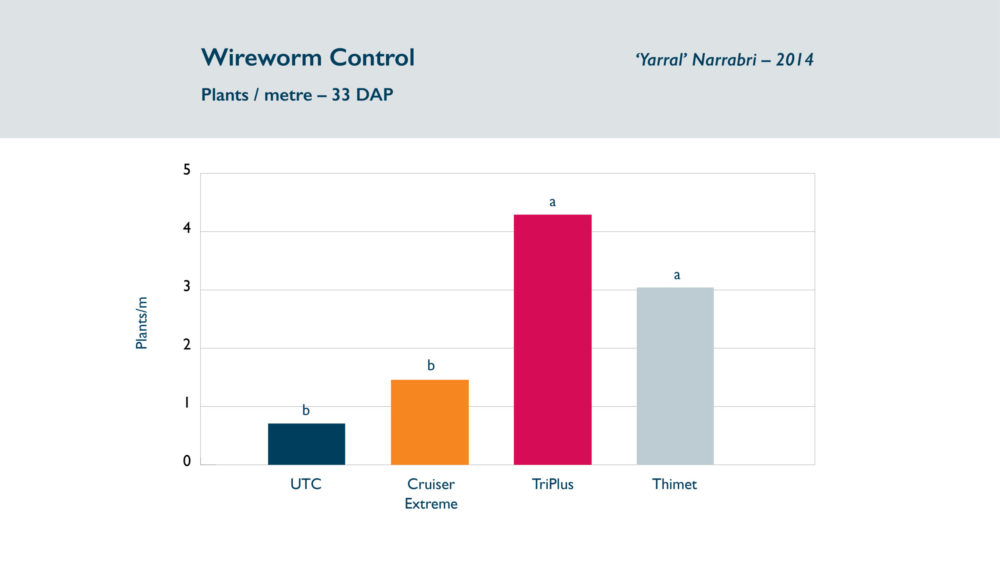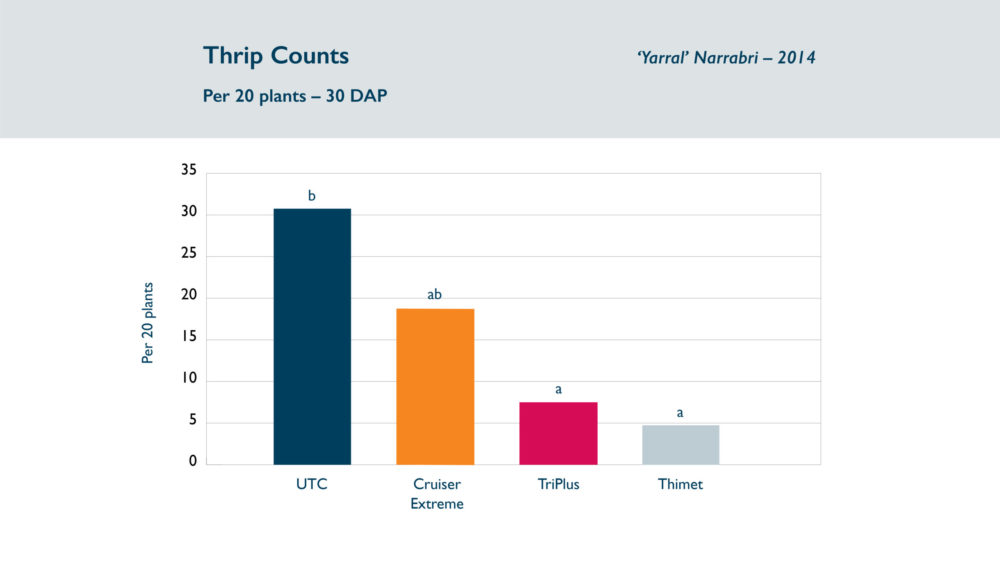For the first time in a decade a new insecticidal seed treatment is available that provides wireworm and thrip control equivalent to Thimet®.
Six years ago, Australis Crop Protection, a private Australian crop protection company, identified a number of attributes that would be ideal in an insecticidal seed treatment.
“We came up with a mix of 3 different compounds from 3 different chemical groups that we felt could offer superior control of wireworm and thrips as well as providing the added benefit of a resistance management tool for the industry,” said Tim Capp, Australis Crop Protection.
The result was TriPlusTM seed treatment, a combination of three actives – thiodicarb, fipronil and imidacloprid – developed and manufactured here in Australia.
Upon conducting initial trials to prove the concept, we were really surprised at the performance in the field when the 3 compounds were added together.
“Basically, we ended up with a seed treatment that performed at least as well as Thimet in the field against wireworms, and certainly gave very good thrip control as well,” Tim said.
Subsequently, TriPlus was trialed extensively across all the major cotton growing valleys over the past 5 years in 19 replicated trials performed by independent companies.
The results from the first trial at ‘Yarral’ near Narrabri, a location with very high wireworm pressure, indicated superior wireworm and thrip control in cotton from germination to stand establishment.
“I was really encouraged because the TriPlus and Thimet gave roughly the same performance (as indicated by the a’s above the bars in graph 1 below). This was statistically better than both Cruiser Extreme® and the untreated control.”
Thrip numbers in the same trial (graph 2 below) also indicated very suppressed thrip numbers in the TriPlus and Thimet treatments compared to the other treatments.
Mr Capp said that on average, across all 19 trials, TriPlus provided comparable wireworm control to Thimet but without the risk of handling a dangerous good.
“TriPlus offers great performance but also the convenience of using a seed treatment,” he added, “so you don’t have the added complication of having to use granular applicators or in-furrow sprays.”
An added benefit of TriPlus is that it combines 3 actives from 3 different chemical groups for resistance management. Current neonicotinoid seed treatments used to control thrips, such as Cruiser and Genero, come from the same chemical group.
“We’ve been subjecting sucking pests to mainly just one group of insecticides for a really long time now and experience has taught us that one of the best ways to manage resistance is by pre-emptive resistance management,” said Mr Eveleigh, who is a private consultant and grower from Narrabri, NSW.
He added that resistance to thrips has already occurred in parts of the United States through the continual use of neonicotinoid insecticides.
“They now have a problem where those particular products fail in the field.”
“Not only does TriPlus provide growers with superior wireworm and thrip control for an even plant stand but as a seed treatment it also means efficient planting,” said Mr Eveleigh. “Just fill the hopper and away you go, with no additional applications or risk to operator safety.”
“Bringing a new chemical group into the mix to control thrips also helps the longevity of existing insecticides and assists with resistance management.”
For more information visit our TriPlus seed treatment page.
Graph 1. Wireworm control (plants/m – 33 DAP) @ ‘Yarral’ Narrabri

Graph 2. Thrip Counts (per 20 plants – 30 DAP) @ ‘Yarral’ Narrabri

